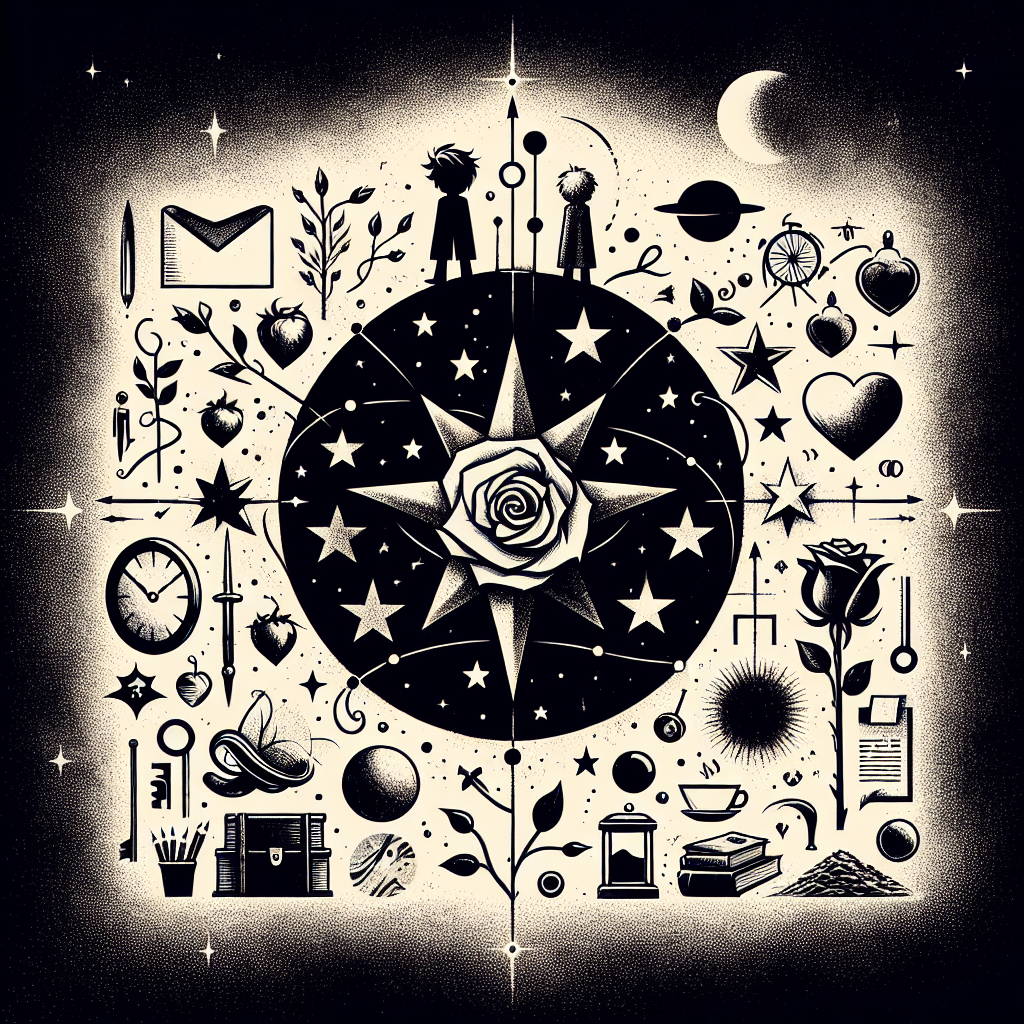Antoine de Saint-Exupéry’s The Little Prince is a timeless literary gem that transcends the boundaries of children’s literature to impart profound wisdom about human nature, relationships, and the essence of existence. Since its publication in 1943, this novella has captivated readers of all ages, imbuing them with a sense of wonder and introspection. As we embark on an analysis of this celebrated work, it is essential to delve into the themes, character development, and narrative techniques that make The Little Prince an enduring classic.
At its surface, The Little Prince recounts the story of a pilot who crashes in the Sahara Desert and encounters a young prince from another planet. However, the novella’s simplicity is deceptive: beneath its enchanting narrative lies a rich tapestry of philosophical musings and allegorical reflections. Antoine de Saint-Exupéry, a pioneering aviator and writer, weaves his own life experiences and existential contemplations into this narrative, making it deeply personal and universally resonant.
One of the principal themes of The Little Prince is the critique of adulthood and modern society. The novella explores how adults often lose sight of the intangible values that truly matter, succumbing instead to materialism and superficiality. This theme is poignantly illustrated through the various characters the Little Prince meets on his interplanetary journey. Each inhabitant of the prince’s seven visited planets exemplifies a particular adult folly: the King who craves authority, the Vain Man who seeks admiration, the Drunkard who drinks to forget his shame, the Businessman obsessed with ownership, the Lamplighter trapped in a cycle of duty, the Geographer who only observes but never explores, and the Narrator, who represents a balancing adult engaging with youthful wonder.
The character of the Little Prince himself is the embodiment of innocence, curiosity, and the wisdom that transcends age. His simplicity allows him to see the world with clarity, asking questions that probe deeper truths. His relationship with the Rose, a symbol of love and fragility, underscores the theme of personal responsibility and care. Their dynamic captures the essence of human connections, teaching the pilot (and the reader) about love’s demanding yet fulfilling nature.
Saint-Exupéry employs a range of narrative techniques to enhance the novella’s impact. The use of a frame narrative, where the pilot recounts his encounter with the Little Prince, creates a sense of immediacy and intimacy. The blend of quaint illustrations by Saint-Exupéry himself adds another layer of charm and accessibility to the story, drawing readers into the prince’s whimsical world. The language, exquisitely simple yet profoundly poetic, stirs both the imagination and the intellect.
The chapter where the Little Prince encounters the Fox particularly stands out as a key moment filled with metaphorical significance. The Fox teaches the Prince about the concept of "taming," which symbolizes forming meaningful relationships. The dialogue between the Prince and the Fox underscores the book’s central message about the essence of love and commitment: "One sees clearly only with the heart. Anything essential is invisible to the eyes." These lines resonate as a timeless aphorism, encouraging readers to appreciate the unseen bonds that weave human connections.
Exploring The Little Prince through multiple perspectives reveals its cultural, social, and historical dimensions. Written during World War II, the novella reflects Saint-Exupéry’s longing for innocence and his disillusionment with the violent, fractured world. Through allegory, he critiques earthly conflicts and the loss of childlike wonder, urging humanity to reconnect with its core values of kindness, empathy, and introspection.
The novella’s legacy is profound, having influenced countless readers, artists, and writers. Its themes have permeated popular culture, inspiring adaptations in various forms: films, theater productions, operas, and more. The Little Prince has been translated into over 300 languages and dialects, making it one of the most translated books in the world. This remarkable reach speaks to its universal appeal and the deep emotional connections it forges with readers.
Reflecting on The Little Prince invites readers to consider its relevance in contemporary society. In an age dominated by technology, social media, and a relentless pursuit of success, the novella offers a poignant reminder to cherish simplicity, nurture relationships, and seek meaning beyond the superficial. Saint-Exupéry’s creation challenges us to look inward and question whether we, as adults, have retained our sense of wonder and the ability to "see with the heart."
As we conclude this analysis, several reflective questions remain. How can we apply the lessons of The Little Prince to our daily lives? In what ways can we reconnect with the values of innocence, love, and responsibility in a world often overshadowed by complexity and materialism? How does the novella encourage us to re-evaluate our priorities and cultivate a richer, more fulfilling existence?
The Little Prince remains a must-read classic because it gently yet powerfully reminds us of the essence of being human. It calls us to embrace the magic of seeing the world through the eyes of a child, recognizing that the most profound truths are those that cannot be seen but felt. Through its pages, Saint-Exupéry invites every reader, young and old, to embark on an introspective journey, discovering that the heart’s vision reveals the true beauty of life.
Got more questions? Our personalized Book Explorer AI assistant is here to help. Click here to start a conversation!
[Advertisement]
Looking to find deeper meaning in the books you love? Discover how ANY book relates to positive biblical principles with Books and Scripture GPT‘ from BGodInspired.com. Click here to explore the connections that might surprise you!
[Advertisement]

